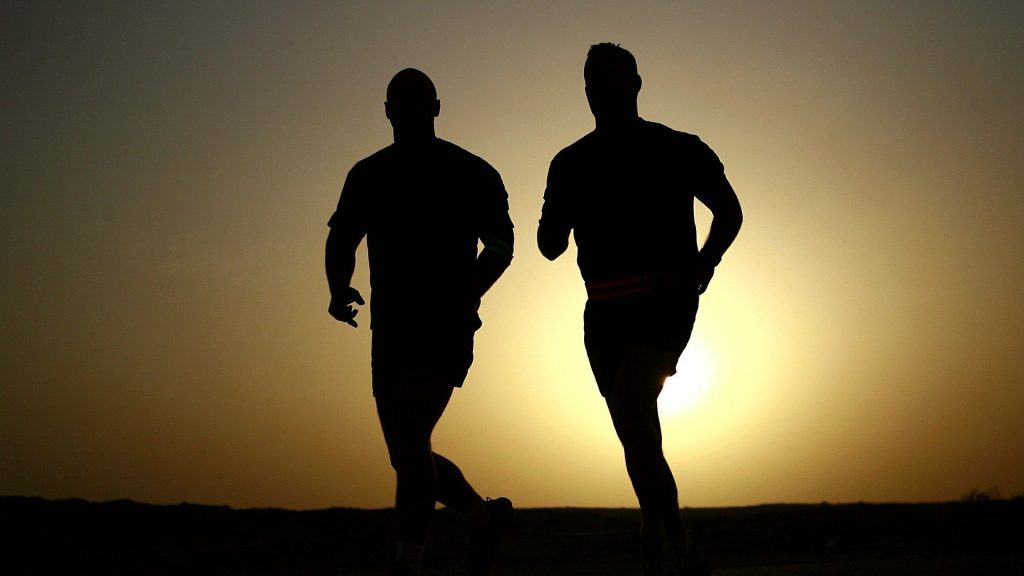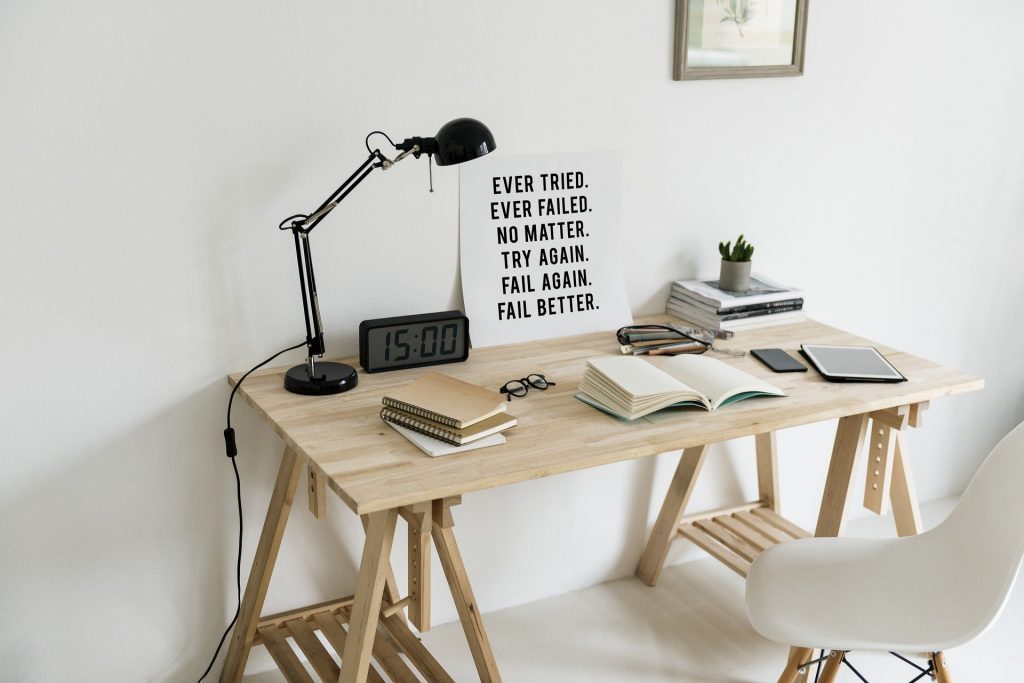In this interview on The Logros Show – in association with The Greater Manchester Chamber of Commerce – Lee Dinsdale talks to Steve Chambers, Body composition expert. Personal trainer for 10 years. Close to 5 years at Ultimate Performance in Manchester. Ultimate Performance Fitness is the world leading body composition experts. specialize in getting people in shape in the shortest time possible.
Interview with Steve Chambers at Unity Radio – The Real Sound of the City.
Lee: This is the Logros Show at Unity Radio – The Real Sound of the City. Each week we have guests from the world of entrepreneurs, health and wellbeing and sport. Today we have Steve Chambers in the studio. Good afternoon Steve. Steve comes from Ultimate Performance and he is a Body Composition Expert, which I find is a fascinating label. We are going to be talking about how to stay fit for the upcoming party season. How to stay on track with your fitness goals into the New Year. We will also be chatting around busting some nutrition myths and even some gym myths. First Steve tell us a little bit about yourself. How do you get to be a Body Composition Expert? You are looking pretty trim. I digress a bit but sometimes, when you go into a gym you look at these PT’s and they are not necessarily living what they are preaching!
Steve: Good afternoon, it’s a bit of a sore subject! I first started working in the fitness industry when I was seventeen as a gym instructor. I was learning from guys a lot older than me. I moved to Manchester in 2015 for the opening of the Manchester gym here and at the time I think had maybe only two years’ experience of personal training. When I came to UP Manchester I was blown away at what actually body composition is. That was quite a new term to me as well – Body Composition Expert, what on earth is that? I was learning from people who had been doing this for a lot longer than me – how to get people in shape in the shortest space of time.
Lee: I definitely want to chat about how to get into the personal training industry. There may be people listening now who are doing their courses or thinking of doing a different kind of employment. What does the body composition, the transformation look like? Give us a little bit of a snapshot of Ultimate Performance, what actually is it?
Steve: We pride ourselves on being the best personal trainers in the world. We are the only global personal training business there is. We have got gyms as far as Sydney, Asia, and LA and soon to open in Washington DC. Even talks about Hollywood. Leeds and Liverpool are opening in the New Year. We are all over the place, Amsterdam as well. We are all about getting people in shape in the shortest time possible. That’s what we do every single day.
Lee: A question I want to ask is for those people who are going to the gym all the time and are in a bit of a routine. All of a sudden the Christmas party season hits and they are trying to balance out, do I go on the works dos and indulge a little bit more, but I’ve been stuck into my training so I don’t really want to do damage . What are some of your top tips to enjoy both sides?
Steve: First thing is it’s more important to establish that you can do both. At this time of the year it’s good to be social and we work so hard through the year so it’s important to establish that it is doable. One thing to avoid is to not change too much of your routine. People tend to fall into the trap of, oh I’m going out and they just stop training altogether. If you are already in training and you want to go out, just keep training. At least you are managing it somehow. Keep that routine going into the New Year. Then you are not having to try and establish another new routine which is where people fail all the time. So if you are training continue to train. You don’t need to punish yourself if you’ve been on a night out. If you go out on a night out, enjoy yourself – it’s Christmas, but if you are meant to train Monday to Friday, train Monday to Friday.
You don’t need to punish yourself if you’ve been on a night out. If you go out on a night out, enjoy yourself – it’s Christmas, but if you are meant to train Monday to Friday, train Monday to Friday.
Lee: Can I just say, everybody give yourself the permission to have a good night out. You may have had a tough year and how many times do people beat themselves up the next day – just give yourself permission to enjoy yourself.
Steve: Yes it’s only going to be Christmas party time once a year, so you can go out with your colleagues and have a good time. It doesn’t mean that you can now just stop doing all the positives that you do in your life, like stop training just for one night out of the year. Carry on and do what you are doing. Aside from training people\’s eating habits change as well. Why on earth for a night out do people have to change their whole days eating for that one night out? Why not just eat the same food that you would normally eat through the day and then enjoy your night? Some people go, oh I’m going out tonight so I’m going to change everything I do.
Lee: What do you mean? Can you give me an example of that?
Steve: If people go out on a Friday evening for example and Friday is a notoriously bad day of the week for food anyway. It’s the end of a hard week, pizzas in the office and things like that. Some people say, I’m going out tonight so why am I going to bother eating healthy? It’s like they come up with an excuse by thinking I’m going to ruin it later anyway, so I might as well not bother. You would be better off thinking, I know I’m going to have a good breakfast and a good lunch. I might as well continue to eat the same and then I will go out and enjoy myself. Then you can feel less guilty tomorrow morning because you didn’t wake up and have a McDonalds for breakfast or whatever it is.
Lee: Oh McDonalds is the best hangover cure!
Steve: No comment!
Lee: Sorry, look at those evil eyes looking at me. Body Composition Expert giving me grief about the McDonalds breakfast! What do you think are some of the main things to look out for? Is it just a case of calories in, calories out when you are going on a night out?
Steve: My simple answer is yes. It’s more complex than that though. A protein from one source and a protein from another source can be two different things. Ultimately, yes. If somebody is only meant to have two thousand calories per day, fundamentally as long as they don’t go over those two thousand calories they should be okay. Two thousand calories from McDonalds or from chocolate is completely different to two thousand calories from nutrient dense foods.
Two thousand calories from McDonalds or from chocolate is completely different to two thousand calories from nutrient dense foods.
Lee: Now we are going to get into a broader topic for those people interested in healthy eating and nutrition which is appropriate in everyday life and training. In terms of training what are some of your top tips for healthy eating?
Steve: Some common things that people do with their eating habits is they try to do too many things in one go. Then they fail to commit and to do any sort of plan. When it comes to healthy eating, pick a plan and stick with that first and see it that works. Have one idea and go with that. So many people try different types of diets. They try it for a week and then try something different so make a decision, stick with that and then see the progress. In terms of eating, some common things that I see all the time is people are scared to eat certain types of food. Carbohydrates get quite a bad rep. People think, I need to stop eating carbohydrates to lose weight. Loads of research now suggests that that is not true. It’s more about calories in versus calories out in that instance. Regular eating is always going to be a winner because it prevents you from getting hungry, craving, stopping off at the nearest service station if you are travelling. Preparation of food is a big thing as well. So prepare your food the night before and take that with you instead of getting caught short at the office. It’s a lot easier than you think. People think they need to cook gourmet meals; it doesn’t need to be that. It just needs to be the basics of what your body needs and what is going to get you to your end goal whatever that may be.
Lee: I started intermittent fasting as in I tough it out until about twelve o’clock until I have my first meal. Now my body seems to have got used to it, whereas previously I would get angry because I had not eaten at nine or ten o’clock. But now I am fine until twelve. What is your view on that?
Steve: I do something very similar myself. There are loads of positive aspects about fasting just as there is for not fasting. For me during my schedule, it just works better for me so I don’t feel pressured to eat. I can get up in the morning; prepare how many clients I need to train. I may need to train myself and I can eat when I have the time and enjoy my food. One of the biggest mistakes is people rush their food.
Lee: I don’t even touch the sides sometimes.
Steve: Yes and then people don’t really get the chance to enjoy their food. I’m very big on enjoying my food. I want my food to be hot, fresh. I want to enjoy my food when I have it.
Lee: If you notice what you are eating and tasting and are mindful while you are eating, does your body get fuller quicker, if you slow your chewing down?
Steve: People say chew everything thirty times or whatever that number is. I think appreciation of food is a big thing and knowing that you’ve had that meal. People eat when they are walking. By the time they get to where they are going, they don’t even know they’ve had that food.
Lee: What about night time? I try (although I failed last night) I ended up going to Tesco and getting some chocolate at nine o’clock. There is this chocolate Oreo bar that I like! Is there any particular time where you should shut off and think, right no food after X?
Steve: No, there is no real hard evidence to support that.
Lee: Okay because I was wondering, if you are eating whatever and then going to sleep pretty soon you assume that your calories are just sat on your body.
Steve: There could be digestive issues if you are eating late because it’s not settled. In terms of should you stop eating after six or seven, it doesn’t really matter. Your body does not work on a clock like that. Whatever you should have in that day, as long as you have it, it’s more important than when you have it.
Your body does not work on a clock like that. Whatever you should have in that day, as long as you have it, it’s more important than when you have it.
Lee: Some tips now on some training regimes. For someone listening who has not been to the gym for a while? They want to get back into the gym but, you need to do it in a way that you are not going to get mental blockers. Then we’ll do a routine for someone who wants to go turbo in the gym. Top tips then for a training regime for someone who wants to go the gym, doesn’t quite make it. They keep making excuses but they know they really should go?
Steve: First establish some kind of deadline for when they want to be at their absolute best. They need to have something scheduled like a holiday. Have a reason to do it. That is the first thing that someone needs to do. In terms of training, it is all about the right kind of training for how they are currently. What most people do is they go to the gym from doing nothing to wanting to go seven days a week. They want to go for two or three hours at a time. No wonder people don’t maintain that. It is not sustainable. Go for a more modest approach. So two or three, from doing nothing is sustainable and have a rest day in between. One big thing is not training just one body part per session. People will go and do legs and do that much they can’t walk for a week! There is no incentive to go back. So do total body workouts, for someone who is new to training is the goal standard.
Lee: What would a total body workout look like?
Steve: Off the top of my head it would be some type of lower body squat movement, then shoulder press, so opposite movements. Then it could be some kind of lower body posterior so a lying leg curl or a seated leg curl into some kind of pulldown movement which is the opposite of the shoulder press. We are trying to work the body in opposites so that it gets an all-round look. Then some more of your isolation based stuff. So it could be arms if it’s a guy who wants bigger arms or if it’s a female it could be glute orientated, say lunges. So start with biggest movements at the beginning of the session when you are fresh and then do what we call low skilled movements when you are fatigued. They don’t take a lot of thinking about and the risk of injury is lower.
Start with biggest movements at the beginning of the session when you are fresh and then do what we call low skilled movements when you are fatigued. They don’t take a lot of thinking about and the risk of injury is lower.
Lee: So a good starting regime. Let’s say you’ve been going to the gym a while and want to step it. You want to go big. A weeks routine from Monday to Sunday, what would you recommend?
Steve: That’s a tough question. Something similar to a total body workout but use more difficult lifts for example. Then sets and reps. How many sets and reps you do per exercise is a big indicator on how tough the session is. So for advanced training something like a push pull lower routine. So one day you will do only push movement’s chest, shoulders, and triceps. The next day only do pulling movements which generally speaking is back, hamstring and biceps. Then use a whole day dedicated to legs on their own. That is something more advanced. Realistically speaking I have trained advanced individuals in the past and they have done a whole body routine. I personally avoid whole body routine, that’s how hard they are.
Lee: Sets with high volume, but lower weights, what is the difference between doing twenty reps versus doing four reps at a heavier weight? Is there any difference in how it affects you?
Steve: There are different types of hypertrophy, which is muscle growth. When you are doing a low rep side of the equation you are going to get strong really quick. The other end which we call sarcoplasmic hypertrophy is the one that bodybuilders do. They create a different look. If you look at a power lifter in comparison to a bodybuilder they will have a very different look even though they will cross between the different types of workout. It all depends what your goal is. Generally speaking for new people, moderate volume, so eight to ten repetitions is probably a good place to start.
Lee: We talked about nutrition before, but if you are wanting to put mass on what diet would you recommend? Is it just calories, or a particular type of calories?
Steve: Obviously nutrient dense foods. Foods with loads of goodness in them, so vitamins and minerals. Not chocolates or anything like that. You need to first establish how many calories you can eat without gaining weight, then simply just add more to that. It could be something as simple as an extra five hundred calories a day. That roughly equates to an extra meal.
Lee: Let’s finish off the show with some top tips on getting into the personal training industry. Just recap on your journey and then I’ll ask you some questions.
Steve: Okay, so I did a sports science degree. While I was in my sports science degree I was fortunate enough to be put through a personal training qualification. Here in the UK you need that qualification to be able to become a personal trainer. You need your insurance. You need a certification of some kind and there are loads of courses. There are loads of companies that do personal training. Some you can do over weekends. Some are more intensive courses where you will go for six weeks or whatever it may be, but yes you need a certification to be able to do it. To be honest I learnt more about being a personal trainer after that. That’s just to get your foot in the door. After that it is the kind of people you research. Who are the leading people in the industry? In any industry you want to know who the top people are. Our founder Nick Mitchell was the main reason that I wanted to work for Ultimate Performance in the first place. Seeing some of his results and his whole ideology of what he wants a personal trainer to be, I thought I need to go and work there. Actually investing in getting results. Instead of exchanging money for time, you are here for a reason and make sure you get what you pay for.
Lee: It’s about the transformation, isn’t it?
Steve: Exactly. So definitely Nick is one of those and there are some other coaches in the States. Probably not many people will have not heard of those, but definitely if anybody wants to get into the fitness world, they need to know who Nick is.
Lee: I always think your attitude in all walks of life is one of the most important things. What kind of positive attitude do you think personal trainers should have?
Steve: First off I think they need an open mind, they don’t know everything. Personal trainers have to get used to taking criticism. That’s one thing that I had to get used to at Ultimate Performance. I had to learn to take criticism in areas I was getting wrong and areas where I could improve.
Lee: Who would criticise?
Steve: Other trainers but it’s all there to help people become better personal trainers. So take criticism, have an open mind and practice what you preach.
Lee: For those people listening Steve, what are your tips on how you know if you have a good personal trainer, based on the fact that there are personal trainers giving feedback on other personal trainers? What does a good trainer look like?
Steve: In my opinion somebody who trains. Somebody who genuinely pays attention to what you have to say. They are not on their phone whilst you are working out. It definitely does not happen at UP! Honestly that is a big thing in the personal trainer world. Also personal trainers putting a client on a treadmill for twenty minutes of an hour session, just to stand there and chat about what they are doing at the weekend. That is a sign of a bad personal trainer. Somebody who wants to know what you’ve been eating that day and is bothered when you have not hit your steps is a good sign.
Lee: To round off the show, and thanks very much for coming in, the New Year is coming up and everyone’s talking about New Year’s resolutions. They are setting goals for the gym. They last one month, they stop. What would your advice be to people to plough on through and get to two or three months with their gym goals?
Steve: Minimum effective dose! What is the least you can do to get in shape? Most people try and do too much all in one go and it is not sustainable. Do a couple of things but do them well is what I would suggest. It’s more sustainable that way. If you commit to go to the gym three days a week, just go three days a week. Don’t commit to five if you’ve not been doing that.
Lee: Minimum effective dose! That is the top tip for 2020, just generally in life! This is the Logros Show in association with The Greater Manchester Chamber of Commerce. This is Unity Radio the Real Sound of The City. I hope you’ve had a good afternoon and everybody have a great evening, goodbye.
Article Transcription by Terry Capostagno
GET IN TOUCH
Take your first steps to Achieving Excellence with Logros. Call or email us for more details.
Complete and we will keep you updated with the latest edition of the “The Logros”.
%22It is not a question of what are you going to do just simply who do you want to be%22
Lee Dinsdale





